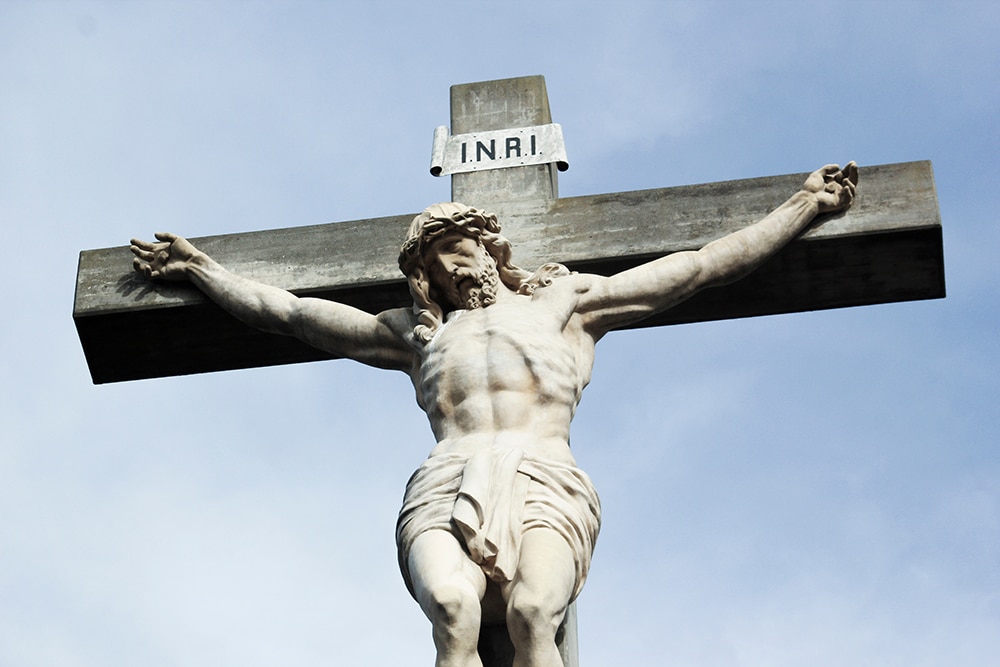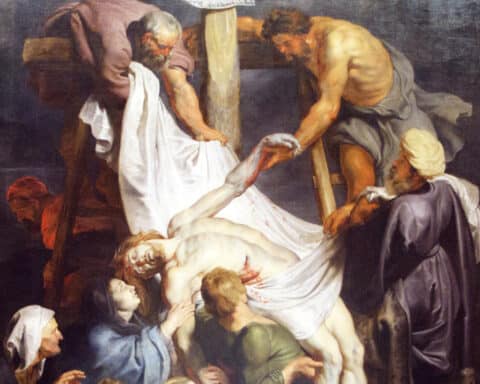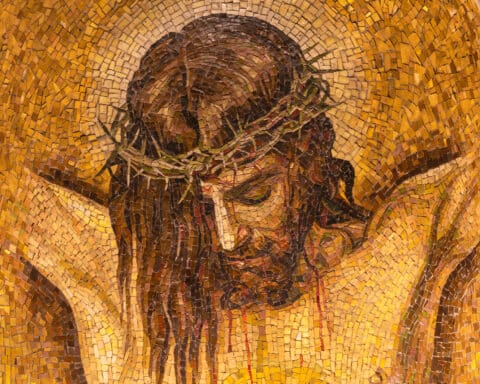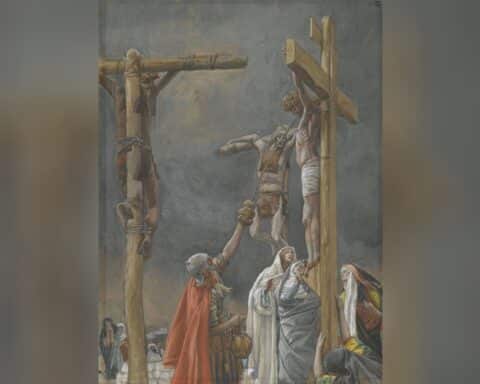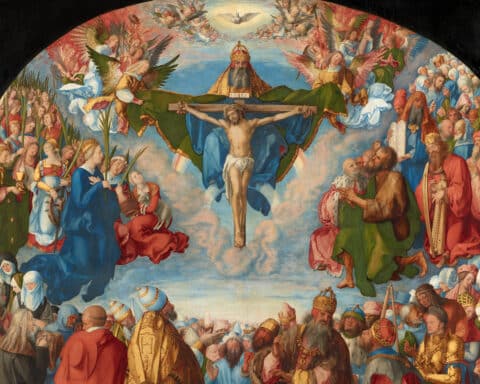
— Billy Bell, via email
Answer: Your question is understandable, but it does not necessarily follow that bones would be broken during the horrible process of crucifixion. The scourging that took place with leather straps embedded with sharp metal attachments was designed to tear at the flesh and cause bleeding, not to break bones.
In terms of nailing the victims, the Roman soldiers placed the nails between the bones and drove them through the flesh, not the bones. There is debate about the placement of the nails in the hands. General consensus today is that they were driven through the wrist near the bottom of the hand where the ulna and radius bones come together. The nail was placed just between these bones, and the large amount of connective tissue was strong enough to hold the weight of the body. Other theories hold that the nail was driven between the bones of the palm and the victim was also tied. Either way, driving nails through bones was not the practice.
As you note, only if the person was slow to die from asphyxiation did the soldiers break the bones of the lower legs to hasten death. This was not necessary in Jesus’ case. Clearly, crucifixion was a horrific process designed to inflict maximum pain for an extended duration.
God’s permissive will
Question: Our Lady of Fatima says God would punish the world for its crimes by wars and persecutions of the Church and the Holy Father. I understand God sometimes punishes people to lead them back to him, but why would God punish evil people by punishing the Church and starting a war? God is all just; he cannot do evil. Is this symbolic of him just allowing things in his permissive will as a result of sin?
— James Seecheung, via email
Answer: Questions related to the cause of things can get complicated when we are talking about God’s role. In one sense, everything is caused by God since he is the first cause of all that exists and happens. As an analogy to illustrate primary causality, consider a bowling ball knocking over the pins. What is the primary cause of the pins falling over? Most will answer, “the ball.” But that is not the correct answer. The bowler is the primary cause, and he initiates the secondary cause — namely, the ball. In a similar way, God sets all things in motion, and in that sense is the first cause of all that happens. This, however, does not eliminate secondary causes. Though a bowling ball does not have free will, we human beings do. God sets us “in motion,” and we act freely, though we still depend on God to hold us in existence and everything else we may use.
The idea that God will punish by sending us a war is too simplistic an explanation. Our Lady of Fatima warned of a worse war to come if people did not repent and turn back to God. But it is not as if God simply sends it. Rather, we who sin set evil loose, and as injustice and bitterness increase, war becomes the inevitable result of our choice to persist in sin. As the first cause of everything, we can say “God does this,” but it is more accurate to say that he allows it and sustains (as first cause) the things necessary for it to come about. Hence your notion of God’s permissive will is a helpful way for most people to understand how many things unfold either as a punishment from God or the simple consequences of our foolish sins. It is a sad truth that many who are less guilty suffer on account of the sins of others. But it is also true that we benefit from the knowledge and virtuous acts of others, as well.
Msgr. Charles Pope is the pastor of Holy Comforter-St. Cyprian in Washington, D.C., and writes for the Archdiocese of Washington, D.C. at blog.adw.org. Send questions to msgrpope@osv.com.

